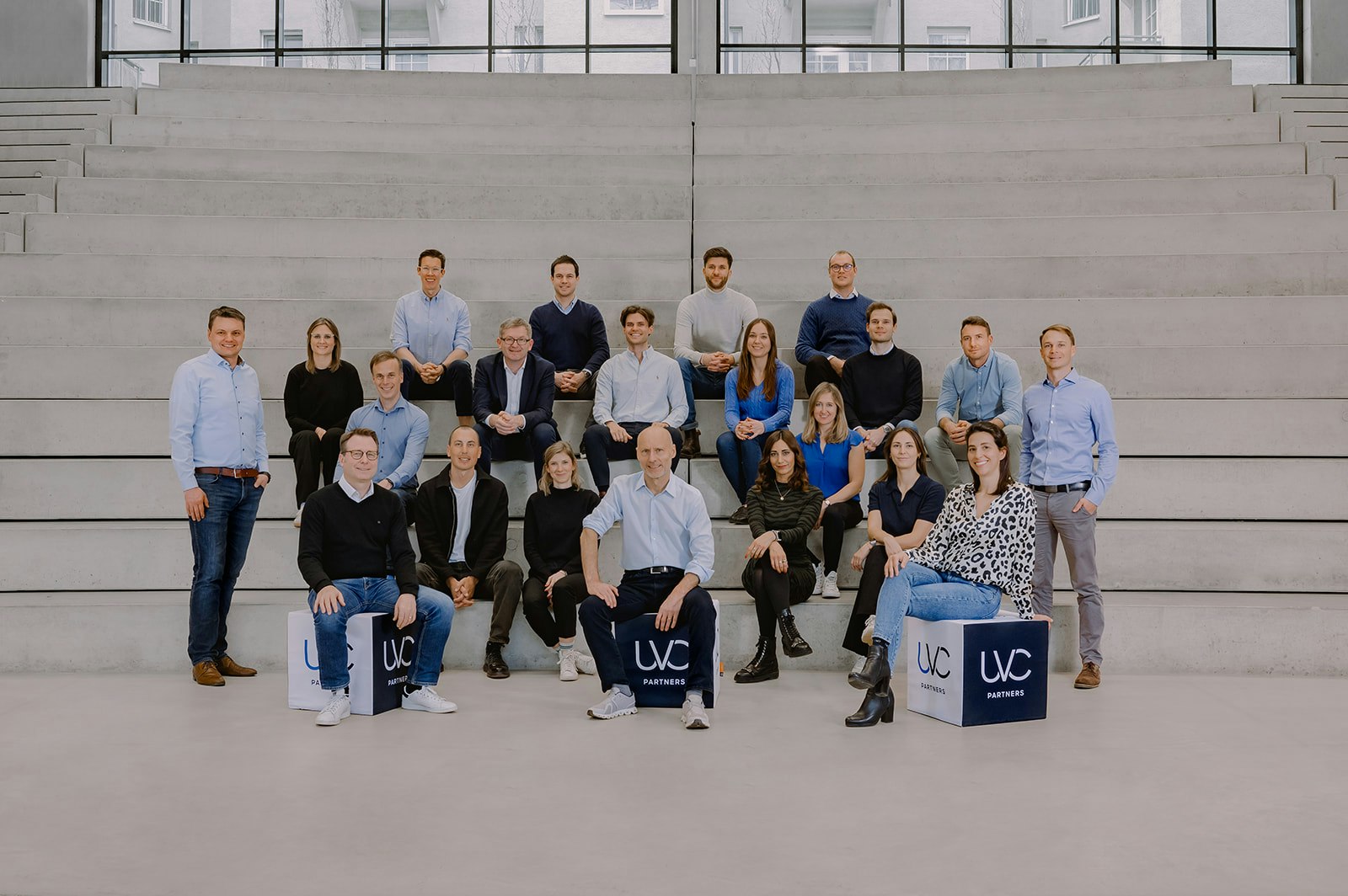For a long time, VC has been blissfully separate from geopolitics.
In Europe, the continent’s ecosystem wasn’t mature enough to come up against policy. And despite the bloc’s reliance on US giants for crucial infrastructure, tech sovereignty was low on the agenda.
Now, that’s changing. The war in Ukraine has raised questions about sources of VC cash; Russia itself banned investors from the CIA’s VC arm from entering the country last month in retaliation against sanctions. US VC giant Sequoia recently split off its Chinese operation amid rising tensions.
As more VCs on both sides of the pond dip their toes into sensitive areas like space and defence, more are asking: do we need a geopolitical strategy?
Why is this happening now?
Geopolitics has risen on the agenda for European VCs in particular as local policymakers look to foster homegrown tech in strategic areas like deeptech and climate to bolster the continent's tech sovereignty.
“Europe's reliance on external powers for technology, innovation and financing threatens its autonomy. VCs should support portfolio companies in diversifying their technology suppliers, expanding into multiple markets, and fostering relationships with customers and investors across various regions,” says Klaus Hommels, founder of European VC Lakestar.
“By actively addressing these risks, VCs can play a crucial role in preserving Europe's digital sovereignty and ensuring the long-term sustainability of portfolio companies.”
In addition to rising geopolitical tensions, the fact that more startups are going global from their earliest days means even generalist VCs should be thinking about geopolitics, says Kenneth Pentimonti, principal at global cybersecurity VC Paladin Capital.
“It's amazing how early on some of these companies are considering themselves global. Before they even have three, four or five million dollars in revenue, they're global entities,” says Pentimonti. That means they will be exposed to different regulatory environments, customers and investors.
“These global issues are going to become a bigger and bigger piece of decision-making — both on the investor side and for venture-backed companies.”
These global issues are going to become a bigger and bigger piece of decision-making — both on the investor side and for venture-backed companies
Geopolitics has always been high on Paladin’s agenda, given its focus. The investor doesn’t deal with “sensitive” countries like Russia and China, and has a 15-person strategic advisory group to weigh in on geopolitical and government issues.
Customers as a potential geopolitical risk
Geopolitics can touch startups and VCs first through the customers that startups work with. If you’re working in an area like space, defence or cybersecurity, chances are high that some of those customers are governments, which can require extra sensitivity.
One startup working closely with public organisations is French-founded cybersecurity company Filigran, which this month raised €5m from VC firm Moonfire and others just nine months after founding. Clients such as Airbus, Thales, New York City Cyber Command, multiple US and Australian federal agencies, the Netherlands National Police Corps and some European ministries are using its open-source software to stress-test critical infrastructure against threats.
CEO and cofounder Samuel Hassine says that working with these kinds of clients means he’s just as focused on getting the right talent for business development and customer success as developers.
“Customer success for cybersecurity is really challenging — building those functions is important for building trust.”
Investors in these critical areas say they’re also being called on to support startups more with government relations. Sunfish Partners, a VC that invests in Polish deeptech companies, for example, appointed SpaceX rival Isar Aerospace’s former European government relations lead as a venture partner in April. Sunfish founding partner Marcus Erken says the appointment also came as Sunfish started making space investments; it made its first two this year, into Liftero and another unannounced deal.
Lakestar’s Hommels says his firm assesses geopolitical risks associated with an investment at due diligence, and that green flags include “a strong track record in government sales (if applicable to the business), robust partnerships and adaptability to regulatory changes”.
“VCs must exercise caution when evaluating companies heavily reliant on government sales without the necessary expertise or strategy, as they may face growth challenges.”
The geopolitics of picking your investors
Then there are the geopolitical risks that come with investors themselves — both direct investors in startups and the limited partners, or LPs, investing in VCs. Sanctions against Russian individuals in recent years have made VCs reexamine some of their LP base, for example.
One way this can play out is through US regulation known as CFIUS, or the Committee on Foreign Investment in the United States, an interagency committee that can review investments from non-US sources for national security risks or concerns. Filing is mandatory in some cases, and most companies which file are in sensitive sectors like space. The UK has similar regulation on foreign investment known as the National Security and Investment Act.
Lawyers at Wilson Sonsini say typically less than 5% of the more than 1,000 deals on which the firm advises annually end up being filed with CFIUS. Of those filed deals, a minority are filed because of the mandatory filing rules.
Most transactions are cleared with no issue — but in some cases, the US government takes action.
In 2021, Russian cofounders of a US space company were asked to sell their stakes in the company after they filed a notice to CFIUS. One of them, Mikhail Kokorich, is now building a hydrogen-powered supersonic jet company, Destinus, in Switzerland.
The US government “didn't want to see me doing this in the US. I wouldn't say this was because of some particular guy; it was the system trying to protect itself,” says Kokorich.

He says that he feels European investors understand that he has been openly outspoken against Vladimir Putin’s regime and that his talent and his “presence in Europe is advantageous” for the region. He still wants to raise from US investors and also wants to tap the Middle East for capital.
CFIUS has also recently said it might ask for information on LPs — the investors in VC funds — even if they're not directly involved in a transaction. Lawyers say that could present even more risks for VCs.
Government as source of capital
Governments are also investing in and supporting more geopolitically sensitive startups. In some cases, those investments or partnerships could restrict where the startups do business and who else they take money from.
"The US, Europe and Asia are all declaring more and more subcategories of critical infrastructure. That means that government agencies in those countries will have requirements about the level of domestic ownership in the companies they partner with. Countries and regions are only becoming more protectionist, and we as VCs need to be aware of this,” says Sunfish’s Erken.
Countries and regions are only becoming more protectionist, and we as VCs need to be aware of this
From Germany to Poland and France, European governments have been setting up new public funds to back deeptech and climate ventures.
The European Investment Fund is planning to unveil a €200m fund for defence funds and committed €300m to space this year. And NATO’s €1bn equity fund for both startups and VCs working on defence and dual-use solutions is due to fully launch in July; Lakestar’s Hommels is chair of the board of directors. Then there are subsidies through initiatives like the EU Chips Act, a €43bn plan to boost semiconductor manufacturing in the region.
We’ve seen how government support for technology can get political. Transatlantic relations briefly got heated after the US passed its $369bn Inflation Reduction Act last year; EU lawmakers were concerned more European greentech companies would invest in the US.
Investors say that these initiatives are needed, as European VCs don’t yet have the capital to back big deeptech bets, another risk for tech sovereignty. In rounds of $250m+ in recent years, US investors have contributed 45% of the capital, according to Atomico’s State of European Tech report. Many European tech successes still decide to go public in the US.
Even if public support is inevitably needed for areas like space, Sunfish’s Erken cautions: “But what policymakers need to be wary of is becoming too emotional in deciding what to back. These are critical, long-term infrastructure decisions."
That said, there are still opportunities in this rockier world.
“As the US and China shift inward, European tech has the opportunity to seize the moment to diversify into overlooked markets and expand its footprint. Moreover, the rising tensions can foster a spirit of collaboration and cooperation among European countries,” says Lakestar’s Hommels.


